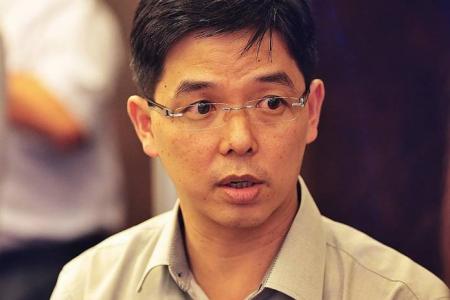Time to cut back on rice
It's one of top five contributors of carbohydrates among diabetic patients in S'pore, says study
She used to lap up two plates of chicken rice - her favourite food - without any qualms.
But after she was diagnosed with Type 2 diabetes three years ago, Madam Margaret Khoo, 64, allowed herself to indulge in it only once a month as a form of "reward".
She is right to cut back.
A local study says rice is one of the top five contributors of carbohydrates among diabetic patients in Singapore.
The study, which was done between 2010 and 2011, sheds light on the major sources of carbohydrates in patients with Type 2 diabetes here. It was released yesterday.
Senior research dietitian Verena Tansaid carbohydrates are the main food group that influences blood glucose levels.
So eating too much carbohydrates will lead to "dangerously high blood glucose levels" and other complications.
Nutritional recommendations for such patients are currently based on Western diets, Ms Tan added.
Dr Eric Khoo, the study's principal investigator and consultant endocrinologist at the National University Hospital, agreed, and illustrated his point with the example of sweetened beverages.
People tend to link such beverages to soft drinks, but forget that "healthier" drinks like Milo are also sources of hidden sugars, he said.
CARBOHYDRATES
The study is focused on carbohydrates as it is the main food group that influences blood glucose levels, Ms Tan said.
"For individuals with diabetes, if blood glucose is not kept in check, it can lead to serious problems, including dangerously high blood glucose levels and chronic complications, such as nerve, kidney and heart damage," she said.
Madam Khoo, a retiree, told The New Paper yesterday: "It's definitely no fun being diagnosed with diabetes.
"But as you grow older, you start to watch your own health too."
She has since come to terms with her medical condition.
"Luckily I found out only when I was 60. Well, I've eaten almost everything, so it's okay," she said.
Her younger sister, Madam Catherine Khoo, has been battling Type 2 diabetes for a decade.
She said: "The first question I had was, 'Why me?' Then I realised it's not that much of a big deal.
"The inconveniences are there, but you're thinking in terms of your own good."
The sisters come from a family with a history of diabetes. Their parents and two elder brothers suffer from the same condition.
DIET CHANGE
Since being diagnosed, they have been complementing their diabetes medication with a diet change.
Both of them are taking oral medication to control their blood glucose levels.
"We don't really count our calories, but we try to reduce our carbohydrate intake," Madam Margaret Khoo said.
For instance, her dinner, which used to be a greasy plate of chicken rice, is now white rice with stir-fried, steamed or stewed dishes.
She conceded that she does not exercise as she is lazy.
Her younger sister follows a similar diet, but tries to be physically active.
"I try to do some household chores and move my limbs around more," she said.
At the end of the day, it is all a balancing act, Madam Margaret Khoo said.
"Sometimes when I forget to take my medicine, I will just take note of what I eat the next day.
"If I go for high tea, I can't help it when the good food is all there. So I just tell myself that I'll eat my salad when I'm back home," she said.
Main carbo source varies across groups
Rice and rice-based dishes may have topped the list of contributors of carbohydrates for the three main ethnic groups in Singapore, but the type of dish still differs for each group, said senior research dietitian Verena Tan, who presented the results of the study yesterday.
The study, conducted on 306 diabetic patients across ethnic groups, shed light on the main sources of carbohydrates according to each ethnic group's diet.
It was funded by a grant from the Singapore Institute for Clinical Sciences at the Agency for Science, Technology and Research.
Get The New Paper on your phone with the free TNP app. Download from the Apple App Store or Google Play Store now



